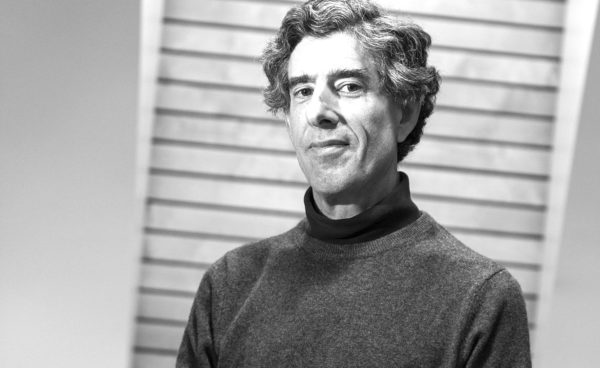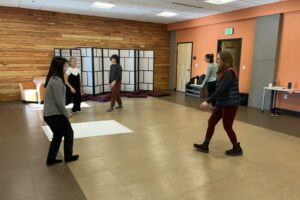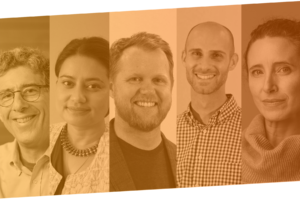
Center Founder and Director Richard Davidson will speak at The Vatican's Pontifical Council for Culture and The Cura Foundation's Fifth International Vatican Conference on May 7, 2021. The Conference will take place virtually from May 6-8, 2021 and will unite the foremost leading physicians, scientists, leaders of faith, ethicists, patient advocates, policymakers, philanthropists and influencers to engage in powerful conversations on the latest breakthroughs in medicine, health care delivery and prevention, as well as the anthropological scientific and cultural impact of technological advances.
Davidson will present during Friday's session, "The Neuroscience of Empathy and Compassion," along with Thupten Jinpa, President of the Compassion Institute, and Stephen Trzeciak, Professor, Chair and Chief of Medicine at Cooper University Health Care at the Cooper Medical School of Rowan University. The session, taking place Friday May 7 at 9:40 a.m. CDT/10:40 a.m. EDT, will share big ideas, research and strategies for training our brains to improve our mental and physical health. The speakers will also discuss why human connection and understanding of others are critical to our lives, helping us to get along, work more effectively, and thrive as a society.
The new virtual format three-day conference, originally scheduled to take place at the Aula Nuova Del Sinodo in the Vatican City, will be presented in dynamic, short-segment programs. This event is the fifth in a series over the past decade aimed at exploring and enhancing cross-disciplinary collaborations to advance human health. The series has reached a wide global audience and included then Vice President Joe Biden addressing the 2016 conference in person. In 2018, Biden also addressed the #UniteToCure conference by video. This year's conference will gather together a formidable group of speakers across all disciplines in the midst of the ongoing COVID-19 pandemic to share their insights about health, humanity and the future of medicine.
The conference will be moderated by acclaimed journalists. A full list of confirmed speakers is available on the conference website.
"Once again, we bring together scientists, physicians, health care providers, social workers, religious leaders of many different beliefs, representatives of law and industry, scholars of ethics, anthropology and philanthropy, and others, all representing different perspectives on the world"
Conference organizers will also spotlight a conversation on "Bridging Science and Faith" by bringing together top physicians, scientists, leaders of faith, ethicists and theologians to explore the commonalities between religion and spirituality and health and wellbeing, as well as examine the relationship between the mind, body and soul. The discussion will delve into the anthropological and cultural dimensions of being human and look for areas of convergence between the humanities and the natural sciences. Discussions around the importance of empathy and compassion, ethical implications of advances in technology, including artificial intelligence, and the impact of innovation on anthropology are among the many areas where dialogue must occur. This important conversation is made possible through the generous support of a grant from the John Templeton Foundation.
In addition to the John Templeton Foundation, conference supporters include Sanford Health, Celularity, Akkad Holdings, The Helmsley Charitable Trust, Sorrento Therapeutics, Aspire Capital Partners, Hackensack Meridian Health, T. Denny Sanford Institute for Empathy and Compassion at the University of California San Diego, United Therapeutics, Alliance Global Partners, The Guthy-Jackson Charitable Foundation, Moderna, Inc. and many others.
The conference will close with a message for the participants from Pope Francis. Complete conference details including the full list of speakers, topics, media moderators and supporters are available on the conference website.
"We must consider the interplay between mind, body and soul if we hope to build a more equitable health care system and improve human health care globally," said Robin Smith, M.D., M.B.A., founder and president of the Cura Foundation. "Providing an opportunity for experts from diverse disciplines to have a dialogue and share information and compare perspectives in a dynamic way and in partnership will inspire hope for patients, families and communities around the world. We often describe the conference as Davos but for health care; a multi-disciplinary approach that mobilizes global leaders to examine the world's most pressing health challenges."
Conference topics will address technology and new innovations in health care and how to make quality health care available and affordable, how to improve human health by addressing the mind, body and soul and how together with empathy, compassion and through the arts, we can make the environment and the world a better place. We will talk about the revolution of telemedicine, the need to provide care to rural and underserved communities and delivering care and treatment into the home and into the community through technology and innovation that will last far beyond the pandemic. We will learn about cutting-edge therapies, examine new regulatory paradigms in regenerative medicine, explore the medical risks of loneliness, and the importance of improving health and wellbeing, caring for others and helping people age with dignity. Complete descriptions of all conference topics are available on the conference website.
"Once again, we bring together scientists, physicians, health care providers, social workers, religious leaders of many different beliefs, representatives of law and industry, scholars of ethics, anthropology and philanthropy, and others, all representing different perspectives on the world," said Cardinal Gianfranco Ravasi, president of the Pontifical Council for Culture. "No one approach can solve the perplexing and critical challenges of our times. More lenses are needed to bring into focus a complete picture of being and existence."
Monsignor Tomasz Trafny, head of the Science and Faith Department of the Pontifical Council for Culture, said, "Together we will focus on advances in medical innovation and the creation of healthier communities and build bridges to catalyze the creation of new, interdisciplinary approaches and partnerships for improving health, wellbeing and understanding human uniqueness."
Adapted from the Cura Foundation's Press Release. Read the full release here.






